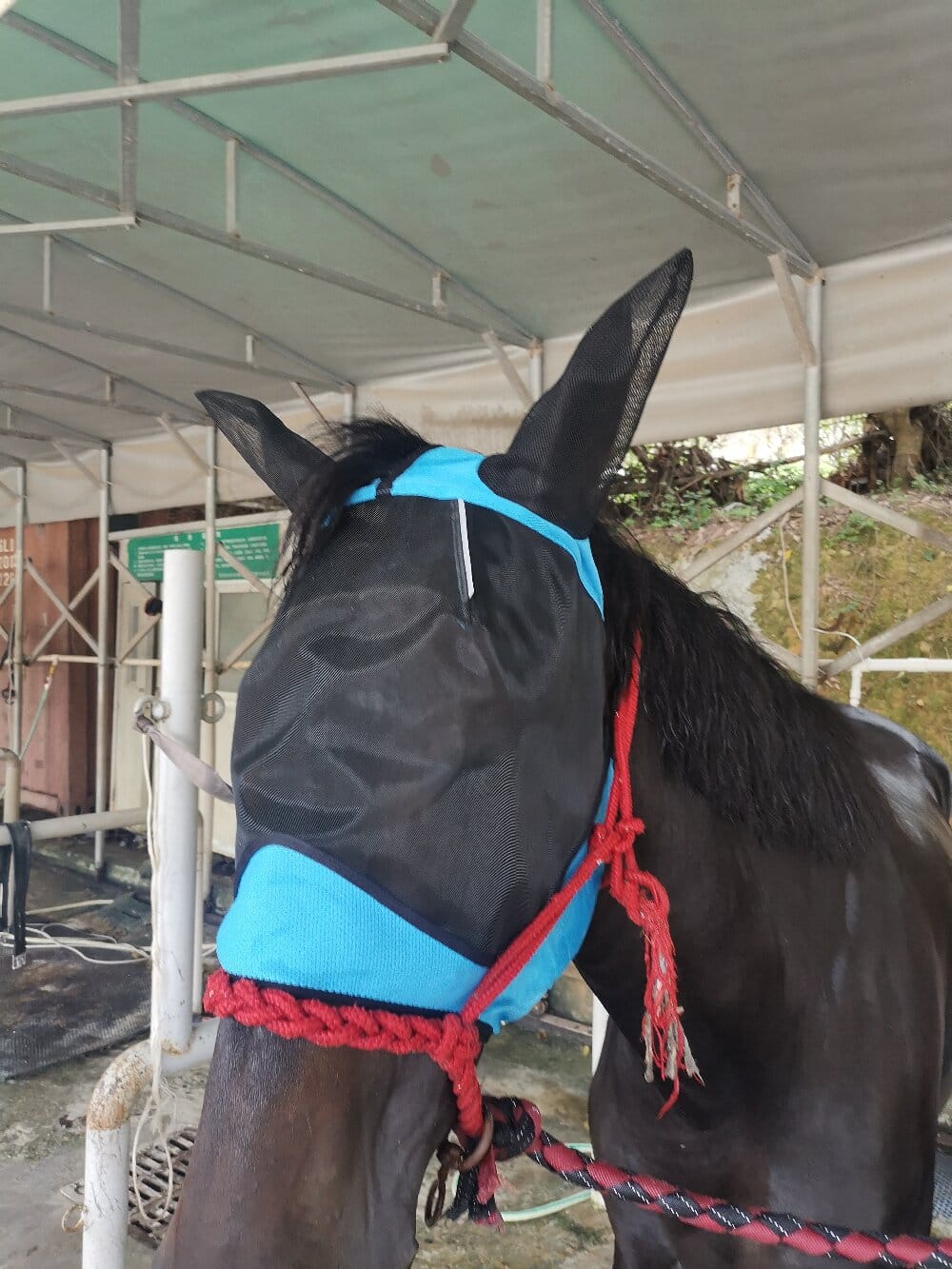A horse fly mask is an essential piece of equine gear designed to protect horses from pesky insects, harmful UV rays, and eye irritants. Whether you own a competitive show horse or a beloved pasture companion, investing in a high-quality fly mask can significantly improve your horse’s comfort and overall well-being. In this article, we’ll explore the benefits, types, and key considerations when choosing the right fly mask for your equine friend.
The Benefits of Using a Horse Fly Mask
Fly masks serve multiple purposes beyond just keeping flies at bay. Here’s why they’re indispensable for horse care:
- Insect Protection: Flies, mosquitoes, and gnats can cause irritation, infections, and even diseases like conjunctivitis. A fly mask acts as a barrier against these pests.
- UV Protection: Many masks come with UV-blocking materials to shield sensitive eyes from sun damage, especially for horses with light-colored coats or pink skin.
- Reduced Stress: Constant swatting at flies can make horses anxious. A well-fitted mask helps them stay calm and focused, whether in the pasture or during training.
- Prevents Eye Injuries: Dust, debris, and wind can scratch a horse’s cornea. A fly mask with mesh or breathable fabric minimizes these risks.
Choosing the Right Horse Fly Mask: Key Features to Look For
Not all fly masks are created equal. Here are the most important factors to consider when selecting one:
- Material: Opt for durable, breathable fabrics like polyester or nylon. Some masks feature moisture-wicking properties for added comfort.
- Fit: A mask should fit snugly without rubbing or restricting movement. Adjustable straps ensure a secure fit for different head shapes.
- Coverage: Some masks cover only the eyes, while others extend to the ears and muzzle for full-face protection.
- Visibility: Ensure the mesh is fine enough to block insects but doesn’t obstruct the horse’s vision.
- Ease of Cleaning: Machine-washable masks save time and maintain hygiene.
Types of Horse Fly Masks for Different Needs
Depending on your horse’s lifestyle and environment, you may need a specialized fly mask:
- Standard Fly Masks: Basic designs covering the eyes and forehead, ideal for general use.
- Full-Face Masks: Extend to the ears and muzzle, offering maximum protection against insects and sun.
- UV-Blocking Masks: Designed for horses prone to sunburn or those with light-sensitive eyes.
- Ear Covers: Some masks include detachable ear nets to guard against flies entering the ears.
- Winter Fly Masks: Made from thicker materials, these provide warmth while still allowing visibility.
Common Mistakes to Avoid When Using a Fly Mask
Even the best fly mask won’t work if used incorrectly. Avoid these pitfalls:
- Poor Fit: A loose mask can slip, while a tight one may cause chafing. Regularly check the fit as your horse’s coat changes with seasons.
- Neglecting Cleaning: Dirty masks can harbor bacteria. Wash them frequently to prevent infections.
- Overuse: Remove the mask periodically to inspect for rubs or irritation, especially in hot weather.
- Ignoring Damage: Replace torn or worn-out masks promptly to ensure continued protection.
Industry Insights: The Future of Horse Fly Masks
Innovation in equine gear is constant, and fly masks are no exception. Emerging trends include:
- Smart Fabrics: Some manufacturers are experimenting with insect-repellent coatings that last longer than traditional materials.
- Customizable Designs: 3D printing and tailored fits are becoming more accessible, ensuring better comfort for individual horses.
- Eco-Friendly Options: Sustainable materials like recycled polyester are gaining popularity among environmentally conscious buyers.
Final Thoughts on Horse Fly Masks
A horse fly mask is more than just a seasonal accessory—it’s a vital tool for maintaining your horse’s health and happiness. By selecting the right type, ensuring a proper fit, and staying informed about advancements in design, you can provide your horse with the best possible protection against insects and environmental hazards. Whether your horse spends its days grazing in the field or competing in the arena, a well-chosen fly mask will make a noticeable difference in their quality of life.

